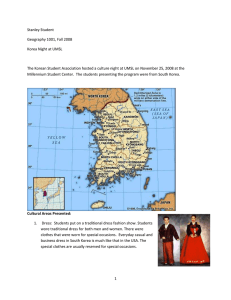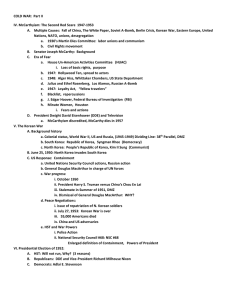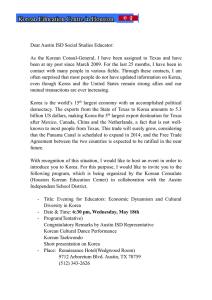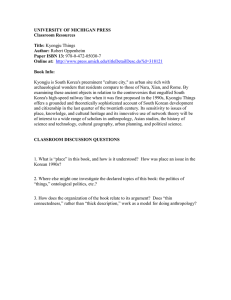Working Bibliography on Gendered Tensions in the Lives of South... Women (Note: Some citations are in MLA, some in APA. They...
advertisement
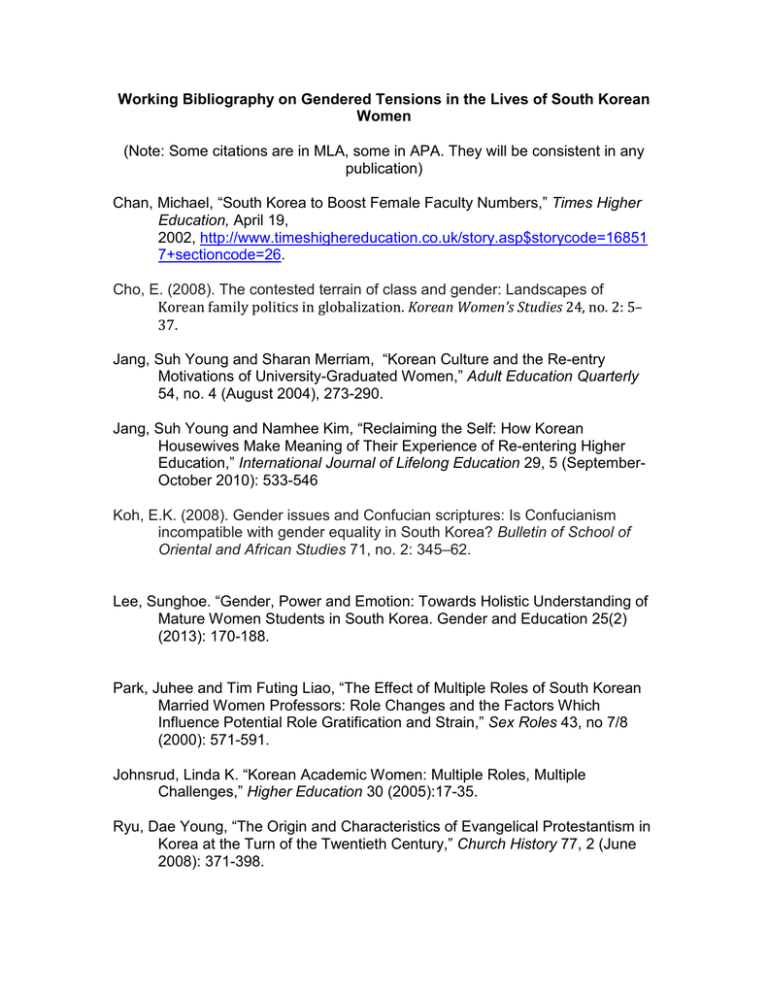
Working Bibliography on Gendered Tensions in the Lives of South Korean Women (Note: Some citations are in MLA, some in APA. They will be consistent in any publication) Chan, Michael, “South Korea to Boost Female Faculty Numbers,” Times Higher Education, April 19, 2002, http://www.timeshighereducation.co.uk/story.asp$storycode=16851 7+sectioncode=26. Cho, E. (2008). The contested terrain of class and gender: Landscapes of Korean family politics in globalization. Korean Women’s Studies 24, no. 2: 5– 37. Jang, Suh Young and Sharan Merriam, “Korean Culture and the Re-entry Motivations of University-Graduated Women,” Adult Education Quarterly 54, no. 4 (August 2004), 273-290. Jang, Suh Young and Namhee Kim, “Reclaiming the Self: How Korean Housewives Make Meaning of Their Experience of Re-entering Higher Education,” International Journal of Lifelong Education 29, 5 (SeptemberOctober 2010): 533-546 Koh, E.K. (2008). Gender issues and Confucian scriptures: Is Confucianism incompatible with gender equality in South Korea? Bulletin of School of Oriental and African Studies 71, no. 2: 345–62. Lee, Sunghoe. “Gender, Power and Emotion: Towards Holistic Understanding of Mature Women Students in South Korea. Gender and Education 25(2) (2013): 170-188. Park, Juhee and Tim Futing Liao, “The Effect of Multiple Roles of South Korean Married Women Professors: Role Changes and the Factors Which Influence Potential Role Gratification and Strain,” Sex Roles 43, no 7/8 (2000): 571-591. Johnsrud, Linda K. “Korean Academic Women: Multiple Roles, Multiple Challenges,” Higher Education 30 (2005):17-35. Ryu, Dae Young, “The Origin and Characteristics of Evangelical Protestantism in Korea at the Turn of the Twentieth Century,” Church History 77, 2 (June 2008): 371-398. Mason, K.O., N.O. Tsuya, & M.K. Choe (Eds.). The Changing Family in Comparative Perspective: Asia and the U.S. Honolulu: The East-West Center, 1998. Weidman, John C. and Namgi Park, Higher Education in Korea: Tradition and Adaptation (New York, NY: Falmer Press), 2000.
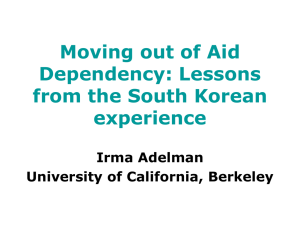
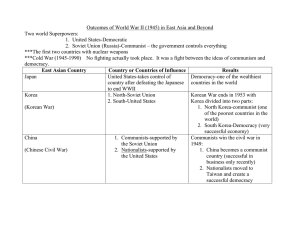

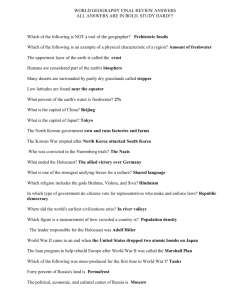
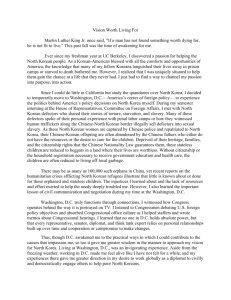
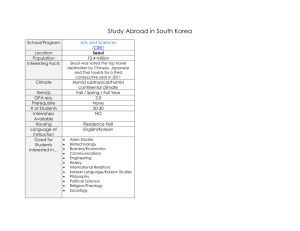

![Korea Risk Assessment 1617 [DOC 48.00KB]](http://s2.studylib.net/store/data/014979551_1-1506a9a7bccfb9ac2acce34e43f09561-300x300.png)
